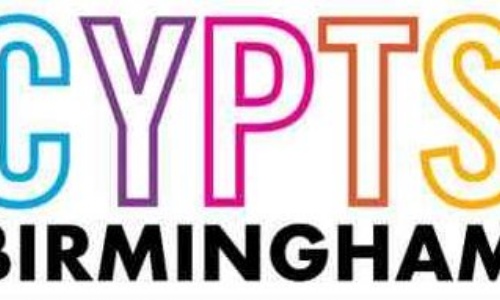Home to School Transport Policy Review

Birmingham City Council is undertaking a review of its Travel Assistance Policy and as part of this review we want to consult with all stakeholders on the changes to the policy that are being considered. These changes would come into effect for the 2024/25 academic year (September 2024 onwards).
The Council has a statutory duty to support eligible children and young people with home to school transport that meets their individual needs. This duty is mandatory in relation to students of compulsory school age. The main types of travel assistance currently available are:
- Travel pass
- Personal Transport Budget
- Transport vehicles
- Provision of a passenger assistant
- Independent Travel Training
Travel assistance for eligible children of pre-school age and young people of sixth form age is provided at the discretion of the Council (i.e. it is not a mandatory duty), and since issuing the Section 114 notice in September 2023 the Council has been required to focus primarily on ensuring it meets its mandatory statutory functions.
Existing provision
The core aspects of Birmingham City Council’s current Travel Assistance Policy are as follows:
Pre-schoolers aged 0-4 (pre-compulsory school age)
The Council’s policy is not to provide travel assistance to pre-schoolers unless the child has an Education, Health and Care Plan and the circumstances can be said to be exceptional. When the Council does provide travel assistance to a pre-schooler it will be in the form of a personal transport budget or a transport vehicle with a passenger assistant, if one is required, and the Council will make a charge for this.
Children aged 5-16 (compulsory school age)
The Education Act 1996 sets out the categories of children and young people of compulsory school age who are eligible for free travel assistance. The Council’s policy is to provide travel assistance to these categories of eligible children and young people in accordance with its legal obligations, but not otherwise unless there are exceptional circumstances. Where travel assistance is provided it will be whatever the Council considers is necessary and suitable for the purpose of facilitating the child's or young person’s attendance at school for the normal school day. This could take the form of a travel pass, a personal transport budget or a transport vehicle with a passenger assistant, if one is required. The Council also offers support in the form of Independent Travel Training for these children and young people.
Young people aged 16-18 (sixth form age)
The only category of young people of sixth form age the Council will consider providing travel assistance for are those with an Education, Health and Care Plan, a disability or learning difficulties who are receiving education or training at schools, FE colleges / institutions, 16-19 academies and certain other institutions maintained or funded by the Council. When the Council does provide travel assistance to eligible young people of sixth form age it will be subsidised and it will take the form of either a travel pass, a personal transport budget or a transport vehicle with a passenger assistant, if one is required. The Council also offers support in the form of Independent Travel Training for these young people.
Adults aged 19+ (people who are not of compulsory school age or sixth form age)
The Council is required by law to provide any travel assistance considered necessary to adults receiving education or training at certain institutions free of charge. The Council may also, in certain circumstances, pay all or part of travelling expenses. The Council will only consider providing travel assistance if the adult has an Education, Health and Care Plan or their circumstances are exceptional.
Proposed changes
The proposed changes to the Travel Assistance Policy, which we are consulting on now, would involve reducing the provision of non-mandatory travel assistance (i.e. travel assistance where the Council is not subject to a statutory mandatory duty to provide assistance) and increasing the parental subsidy contribution to access non-mandatory services for post-16 travel assistance.
Specifically, these changes are:
Pre-schoolers aged 0-4 (pre-compulsory school age)
- Any discretionary travel assistance would be offered in the form of a personal transport budget only.
Young people aged 16-18 (sixth form age)
- When travel assistance is provided, this would be in the form of a personal transport budget or a travel pass, including support with Independent Travel Training.
- Parents and carers contributions to this non-mandatory travel assistance would increase from £780 to £1,028 per academic year. The contribution from low-income families would remain at £390 per academic year.
These proposed changes will not affect eligible children of compulsory school age or eligible adults aged 19+. Equally, the proposed revised policy will continue to enable the most vulnerable young people of sixth form age to receive support and it will retain preparation for adulthood as a core principle.
Reason for proposed changes
The reason for proposing these changes is the Council’s current financial position. Birmingham City Council has issued a Section 114 notice as part of the plans to meet the Council’s financial liabilities relating to Equal Pay claims and an in-year financial gap within its budget which currently stands in the region of £87 million.
The Council has a duty to consider all possible financial measures in accordance with the savings required following the Section 114 notice, and the proposals above, if fully implemented, are projected to bring budgetary savings of £25 million over the course of the 2024/25 and 2025/26 financial years.
We have to be candid and recognise that this proposal involves a reduction on what is offered. That is not something the Council wishes to do, but rather considers itself driven to by the current financial situation.
Downsides
We also recognise that these changes are likely to have the following downsides:
Reducing provision for students applying for travel assistance at post-16:
- Restricting travel assistance for post-16 students may create barriers to education, particularly for those residing in areas with limited public transportation options. This could lead to students choosing schools or courses based primarily on proximity rather than personal interest or career goals, limiting their educational opportunities.
- The reduction in support for post-16 travel assistance may particularly affect disadvantaged youth who already face challenges in accessing quality education. This could perpetuate socio-economic disparities and hinder efforts to promote equal educational opportunities.
- Students facing transportation challenges may experience increased stress and fatigue, potentially impacting their academic performance. Longer and more arduous commutes could lead to absenteeism, reduced focus and overall diminished educational outcomes.
Increasing parental subsidy contribution for post-16 travel assistance:
- The proposed increase in parental subsidy contribution, especially for families with more than one child requiring travel assistance, may impose a significant financial burden. This added expense could force families to make difficult choices, potentially sacrificing other essential needs to cover transportation costs.
- The increased financial obligation for post-16 travel assistance might discourage students from pursuing higher education, particularly if the added costs are perceived as insurmountable. This could contribute to a decline in the number of students continuing their studies beyond compulsory education.
Possible alternatives
The alternatives would be to not implement this change, to make the change differently in some way, and / or to look to find further savings from other parts of the Council’s Education budget. Such alternatives are extremely challenging, as the Council has already been looking very carefully at the Education budget, and proposing or implementing savings wherever possible. If the Council did not implement any or all of the above savings proposals, then it would have to look to further savings from the Education budget, beyond those already proposed in other areas, which would entail an even greater reduction in spending on existing services.
We would, though, welcome any views on the above, as well as any thoughts on what alternative savings from the Education budget could be made if any or all of the proposed changes to the Travel Assistance Policy described above are not made, and the Council has to look to make up the shortfall in its Education budget from elsewhere.
Equally, we would also welcome any views on how to mitigate the likely adverse effects of the above proposals. Mitigating the downsides of the proposed changes requires a careful and comprehensive approach to address the concerns raised; potential mitigation strategies for these proposals include:
Reducing the provision of non-statutory travel assistance:
- Targeted Support Programmes: Implement targeted support programmes for vulnerable individuals affected by the reduction, ensuring that alternative transportation options are available for medical appointments and social services. This could involve partnerships with local community organisations or transportation services to fill the gap left by the reduction.
- Community Outreach and Communication: Conduct extensive community outreach and communication campaigns to inform affected individuals about the changes, alternative options and available support services. This will help manage expectations, reduce anxiety and ensure that those in need are aware of the assistance available to them.
Reducing provision for students applying for travel assistance at post-16:
- Expanded Public Transportation Services: Work with local transportation authorities to expand and improve public transportation services, especially in areas with a high concentration of post-16 students. This would provide viable and affordable alternatives, reducing the impact of the reduction in travel assistance.
- Targeted Grants: Introduce or direct post-16 students to targeted grants for post-16 students facing financial challenges related to transportation. This could incentivise students to pursue higher education based on their interests and aspirations rather than geographical constraints.
- Flexible Learning Options: Explore and promote flexible learning options, such as online courses or remote study programmes, to reduce the necessity for daily travel. Work with schools and colleges to promote flexible learning opportunities. This could be particularly beneficial for students in rural or underserved areas where transportation options are limited.
Increasing parental subsidy contribution for post-16 travel assistance:
- Phased Implementation: Implement the increase in parental subsidy contribution gradually over multiple years, allowing families to adjust to the financial changes. This phased approach provides families with more time to plan and make necessary adjustments to their budgets.
- Expanded Financial Counselling Services: Offer expanded financial counselling services to families, providing guidance on budgeting and assistance in navigating available financial support programmes. This can help families, especially those with multiple children, manage their finances more effectively.
- Review and Adjust Income Thresholds: Regularly review and adjust the income thresholds for low-income families to ensure that the subsidy remains effective in providing meaningful relief. This adaptive approach ensures that the support aligns with the changing economic landscape and the needs of families over time.
Consultation
Your response will play an important role in informing the decisions surrounding the Travel Assistance Policy and we appreciate you taking the time to complete this consultation.
Please ensure you have read the following documents prior to completing this consultation:
Current Travel Assistance Policy
Appendices to current Travel Assistance Policy
Proposed new Travel Assistance Policy
New Appendix 6 to proposed Travel Assistance Policy
Travel Assistance Policy Review Consultation Presentation
The consultation will be open for five and a half weeks, beginning on Wednesday 7th February 2024 and closing on Friday 15th March 2024.
The Children & Young People’s Travel Service will be hosting webinars on Thursday 15th February at 10.30am and on Thursday 7th March at 5.30pm, so that representatives from the service can explain the proposed policy changes and talk through the Council’s consultation process.
If you would like to attend one of these webinars, please complete a webinar registration form. Registration for each webinar will close 24 hours before the advertised start time.
If you need the consultation form to be translated into another language please contact the Children & Young People's Travel Service at travelassist@birmingham.gov.uk and we will do our best to assist you.
Thank you for your valuable input.
Children & Young People’s Travel Service

